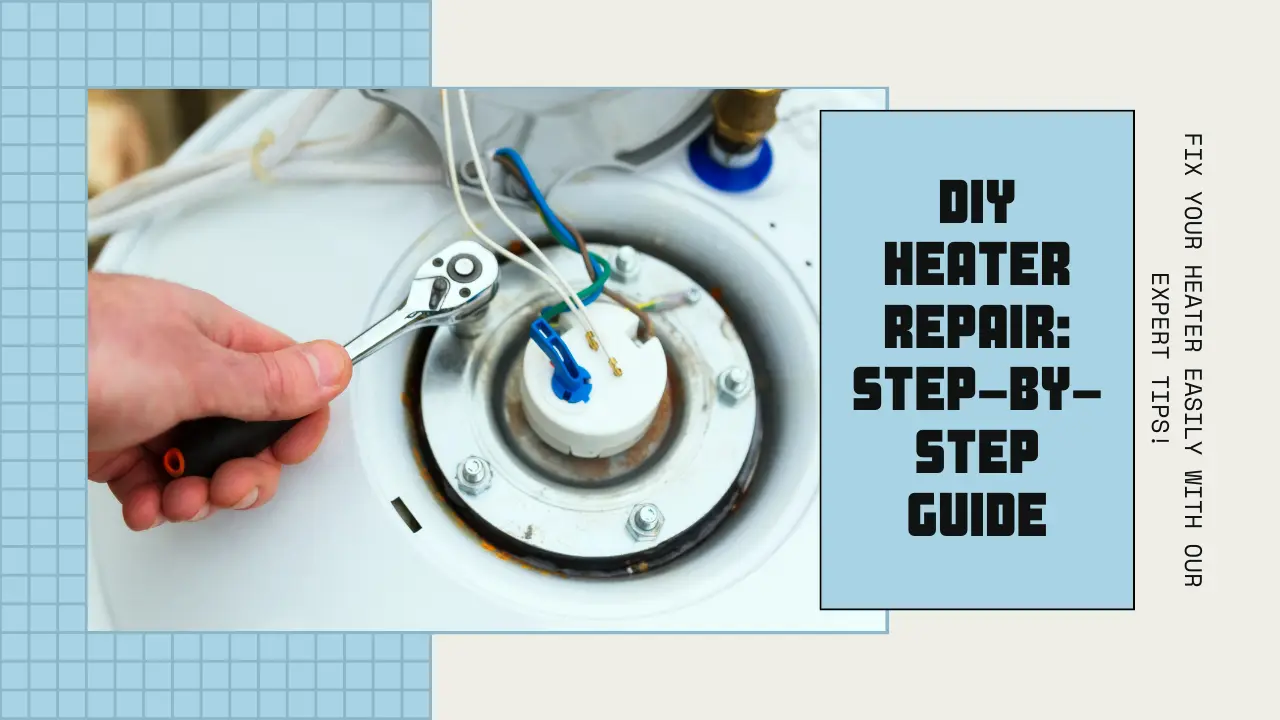A Comprehensive Guide to Heater Repair: Tips and Insights for U.S. Homeowners
Your home’s heating system is a lifeline during the cold winter months. A malfunctioning heater not only compromises your comfort but can also lead to escalating energy bills and potential safety hazards. Understanding the common issues that can arise with different types of heaters, knowing how to troubleshoot minor problems, and recognizing when professional heater repair is necessary can save you time, money, and stress.

Types of Heaters and Common Issues
Furnaces:
- How they work: Furnaces burn fuel (gas, oil, or propane) to heat air, which is then circulated through your home via ducts.
- Common problems:
- Pilot light issues (failure to ignite, flickering)
- Blower motor malfunctions (strange noises, weak airflow)
- Thermostat issues (inaccurate readings, failure to control temperature)
- Clogged or dirty filters (reduced airflow, overheating)
- Ignition problems (failure to start, frequent cycling)
- Cracked heat exchanger (can be a safety hazard due to potential carbon monoxide leaks)
People Also Read?
Heat Pumps:
- How they work: Heat pumps extract heat from the outdoor air (or ground) and transfer it indoors. In summer, they reverse this process to cool your home.
- Common problems:
- Refrigerant leaks (reduced efficiency, potential system damage)
- Faulty reversing valve (prevents switching between heating and cooling modes)
- Sensor problems (inaccurate readings, affecting performance)
- Compressor issues (loud noises, reduced efficiency)
- Defrost cycle malfunctions (ice buildup on outdoor coils)
Boilers:
- How they work: Boilers heat water, which is then distributed to radiators or baseboard heaters throughout your home.
- Common problems:
- Leaks (can cause water damage and affect system pressure)
- Kettling (rumbling noise caused by mineral buildup)
- Pilot light issues (failure to ignite or stay lit)
- Circulator pump problems (poor water circulation, uneven heating)
- Low pressure (can be caused by leaks or a faulty pressure relief valve)
People Also Read?
Electric Heaters:
- How they work: Electric heaters convert electricity into heat, using elements that glow red hot when activated.
- Common problems:
- Heating element failure (no heat output)
- Thermostat malfunctions (inaccurate readings, failure to control temperature)
- Wiring issues (can lead to overheating or safety hazards)
- Fan motor problems (if equipped, can cause noisy operation or reduced airflow)
Signs Your Heater Needs Repair
- Unusual noises: Banging, clanging, popping, whistling, or grinding sounds are not normal.
- Inconsistent or insufficient heating: Rooms not warming up properly, cold spots, or drastic temperature swings.
- Unexplained increase in energy bills: A sudden spike in heating costs could indicate inefficiency.
- Frequent cycling on and off: Short cycling can wear out components and point to underlying issues.
- Yellow pilot light (gas furnaces): A healthy pilot light should be blue. Yellow indicates incomplete combustion.
DIY Troubleshooting Tips
- Check and replace filters: Dirty filters restrict airflow and strain the system.
- Thermostat settings: Make sure the thermostat is set to the desired temperature and the correct mode (heat, cool, auto).
- Circuit breakers: If the heater won’t turn on, check the circuit breaker panel for tripped breakers.
- Vents and ducts: Make sure vents are open and unobstructed. If you have a forced-air system, clean the ducts periodically.
Safety Precautions:
- Gas leaks: If you smell gas, evacuate the house immediately and call your gas company.
- Electrical issues: Never work on electrical components if you’re not qualified.
- Water leaks (boilers): Turn off the system and call a professional if you see leaks.
- Carbon monoxide (gas systems): Install carbon monoxide detectors and have your system inspected annually.
When to Call a Professional
Don’t hesitate to call a qualified technician if:
- You smell gas.
- You suspect an electrical problem.
- The issue involves major components (e.g., heat exchanger, compressor).
- You’ve tried basic troubleshooting, but the problem persists.
People Also Read?
How to Choose a Reliable Heater Repair Service
Selecting a reputable HVAC technician is crucial. Here’s what to look for:
- Licensing and certification: Ensure the company and technicians are licensed and certified to work on your type of heating system.
- Reviews and recommendations: Check online reviews and ask friends, family, or neighbors for referrals.
- Warranty and insurance: Reputable companies offer warranties on parts and labor and carry liability insurance.
- Experience and expertise: Inquire about the technician’s experience with your specific heater brand and model.
- Written estimates: Get a detailed, written estimate before any work begins.
Preventative Maintenance Tips
Regular maintenance can prevent many heater problems and extend the lifespan of your system:
- Filter replacement: Change filters regularly according to manufacturer recommendations.
- Annual professional inspections and tune-ups: Schedule an annual service call to have your system cleaned, inspected, and tuned up.
- Clearance around the heater: Keep the area around your heater free of debris and flammable materials.
- Check for leaks and corrosion: Visually inspect your system for any signs of leaks, rust, or corrosion.
Cost of Heater Repair
Heater repair costs can vary depending on several factors:
- Type of heater: Furnaces, heat pumps, boilers, and electric heaters have different repair costs.
- Severity of the issue: Simple fixes like replacing a thermostat are less expensive than major repairs like replacing a heat exchanger.
- Labor rates: Labor costs vary depending on your location and the complexity of the repair.
- Brand and model: Parts for some brands and models may be more expensive than others.
It’s always a good idea to get multiple estimates to compare prices.
Energy Efficiency and Upgrades
If your heater is old or inefficient, consider upgrading to a newer, more energy-efficient model. Modern heating systems can significantly reduce your energy consumption and lower your utility bills.
Look for heaters with high AFUE (Annual Fuel Utilization Efficiency) ratings for furnaces and boilers, and high SEER (Seasonal Energy Efficiency Ratio) and HSPF (Heating Seasonal Performance Factor) ratings for heat pumps.
Many states and utility companies offer rebates and incentives for upgrading to energy-efficient heating systems, so be sure to research what’s available in your area.
People Also Read?
Conclusion
Your home’s heating system is a vital investment, and taking care of it is essential. By understanding the common issues that can arise, performing basic troubleshooting, and knowing when to call a professional, you can ensure your home stays warm and comfortable all winter long. Regular maintenance and timely repairs not only extend the life of your heater but also help you save money on energy bills and avoid unexpected breakdowns.





